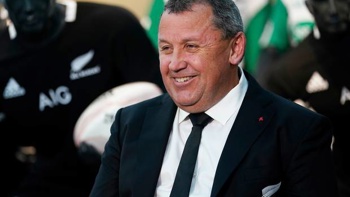US President Donald Trump and North Korean leader Kim Jong Un have made history with a handshake and greeting before a one-on-one meeting in Singapore.
The discussions will give both a chance to size each other up and start discussions that could open the door to negotiations on denuclearisation of the Korean Peninsula.
The two leaders exchanged a handshake, arm and back pats, and initial words at a secluded island resort off the coast of Singapore.
Trump had a distinctive height advantage over Kim and directed the younger man in the manner of a host. Kim flashed a smile before the cameras.
They are now in a private meeting, accompanied only by interpreters.
Though squadrons of US Administration officials have been preparing for this encounter for months, the 45-minute meeting will be potentially improvisational.
It will be followed by a more formal bilateral meeting that will be joined by aides.
/arc-anglerfish-syd-prod-nzme.s3.amazonaws.com/public/FZCOPYFOUJBH7H4R6BKPZSBMXM.jpg) Kim Jong Un and Donald Trump exchanged a handshake, arm and back pats.
Kim Jong Un and Donald Trump exchanged a handshake, arm and back pats.
The US side is expected to include Secretary of State Mike Pompeo, national security adviser John Bolton and White House Chief of Staff John Kelly.
"Meetings between staffs and representatives are going well and quickly....but in the end, that doesn't matter," Trump tweeted before dawn in Singapore. "We will all know soon whether or not a real deal, unlike those of the past, can happen!"
The stakes are extremely high.
The United States is seeking the complete, verifiable, irreversible denuclearisation of North Korea, a nation that possesses dozens of nuclear weapons, including some capable of striking the US mainland.
Kim wants an end to sanctions, normalised relations with the United States and a dramatic reduction in the US military presence in the region. Kim is about to attain one of his main goals that has long eluded him: a level of international recognition that is automatically signified by a meeting with the US President.
But it was unclear whether the President and the dictator could realistically reach any concrete agreements in just one day of talks.
Wide gaps remain between the North Korean and US interpretations of what verification means. And the United States is insisting that it would not ease sanctions until North Korea's denuclearisation was complete. But Pompeo told reporters that the Administration is prepared to provide security assurances unlike any that previous administrations have offered.
Trump, maintaining his early-morning Twitter habit even on the other side of the world, apparently woke up exuding confidence that the summit would be productive and would show up critics who carped that he is unprepared for rigorous talks on nuclear weapons.
"The fact that I am having a meeting is a major loss for the US, say the haters & losers," he tweeted. "We have our hostages, testing, research and all missle launches have stoped, and these pundits, who have called me wrong from the beginning, have nothing else they can say! We will be fine!"
Trump and his team vowed that the US would not repeat past missteps in negotiating with the rogue, nuclear-armed nation.
"The US has been fooled before - there's no doubt about it," Pompeo told reporters as the two sides raced to finalise summit details.
"Many presidents previously have signed off on a piece of paper only to find the North Koreans didn't promise what we thought they had or actually reneged on their promises," he added. "Despite any past flimsy agreements, the president will ensure no potential agreement fails to adequately address the North Korean threat."
On his final day before meeting Kim, Trump sought to consolidate support from key allies, speaking by phone with South Korean President Moon Jae In and Japanese Prime Minister Shinzo Abe, who have been in close coordination with the White House for months.
/arc-anglerfish-syd-prod-nzme.s3.amazonaws.com/public/PVUK7ERUGVBQBIAENAJWGDXIAY.jpg) Donald Trump had a distinctive height advantage over Kim Jong Un and directed the younger man in the manner of a host.
Donald Trump had a distinctive height advantage over Kim Jong Un and directed the younger man in the manner of a host.
Pompeo pronounced Trump well prepared for the meeting, emphasising that the President was determined not to reward Kim until the North had taken concrete steps toward curbing its nuclear weapons and ballistic missile programmes.
"The President has made very clear that until the time we get the outcome we're demanding, economic relief will not be provided," Pompeo said. "That's different. There's always been the hypothesis that somewhere along the way America would take its foot off. We will not do that."
Sanctions will "remain until they have verifiably eliminated" the nuclear programme, he said. "If it does not move in the right direction, those measures will increase."
But in a sign that Trump is counting on developing a personal rapport with Kim to help bridge differences, aides said that, after their initial greeting, the two leaders would meet in private, joined only by their interpreters, for 45 minutes.
The private meeting represents a risky attempt by Trump to quickly size up Kim's intentions based on their personal interactions, which the President said two days ago would guide how he approaches the negotiations.
Trump said that much of their discussions could change on the "spur of the moment" and that a one-on-one conversation would offer the President an opportunity to eschew talking points in favour of his own improvisation.
Analysts have warned that Trump could wind up offering unwise concessions to Kim, but aides defended the approach by suggesting that a direct conversation would help develop trust.
"There are only two people that can make decisions of this magnitude, and those two people will be sitting in a room tomorrow," Pompeo said.
Earlier, a team of US negotiators arrived at the Ritz-Carlton hotel to meet with their North Korean counterparts to nail down final details for the summit, the first between a sitting US president and a North Korean leader.
Led by Sung Kim, a longtime State Department diplomat who now serves as the US ambassador to the Philippines, the American team held at least five sessions with the Pyongyang delegation over the past two weeks in the demilitarised zone between the two Koreas.
But the two sides reportedly have struggled to close the gap on the crucial question of North Korea's intentions on denuclearisation. Sung Kim was accompanied by Randall Schriver, an assistant secretary for Asia at the Pentagon, and Allison Hooker, the National Security Council director for Korea.
The group did not respond to shouted questions as members entered the hotel past a phalanx of journalists. The North Korean delegation, which was led by Choe Son Hui, the vice-Foreign Minister, also was mum as it arrived a few minutes later.
"Substantive and detailed meetings in #Singapore today," Pompeo wrote on Twitter.
Pompeo insisted that the US side has not changed its demands that North Korea agree to a verifiable and irreversible dismantling of its weapons programmes.
At the same time, however, he also referred to a goal of "denuclearising the Korean Peninsula," a phrase that Pyongyang has traditionally taken to mean that the US would end its "hostile policy" by withdrawing troops based in the region and removing its nuclear security umbrella over South Korea and Japan.
"We're prepared to take action to provide them certainty and comfort that denuclearisation is not something that ends badly for them," Pompeo said. "Just the opposite: It will lead to a brighter and better future for the North Korean people."
Pressed on whether the United States is willing to discuss troop withdrawal, Pompeo declined to offer details but appeared to leave the door open. Trump has said previously that while he would consider reducing troop levels in the future to save money, such a move was not on the table for the summit.
After their summit, Trump and Kim plan to have a working lunch, with their respective delegations, before potentially holding another bilateral meeting in the afternoon.
Plans following lunch are flexible to allow for further meeting time, a US official said.
The White House said Trump would leave Singapore at 8pm (12pm) to return to Washington after speaking to the press corps.
News reports have speculated that the North Korean delegation could depart Singapore in the early evening NZT, but US officials said they believe it is possible that Trump and Kim could continue talking if their morning session goes smoothly.
One US official was quoted by a South Korean news outlet saying he believes that the report of an early departure for Kim was intended as a negotiating tactic for the North Korean side to gain leverage in the talks.
Take your Radio, Podcasts and Music with you









